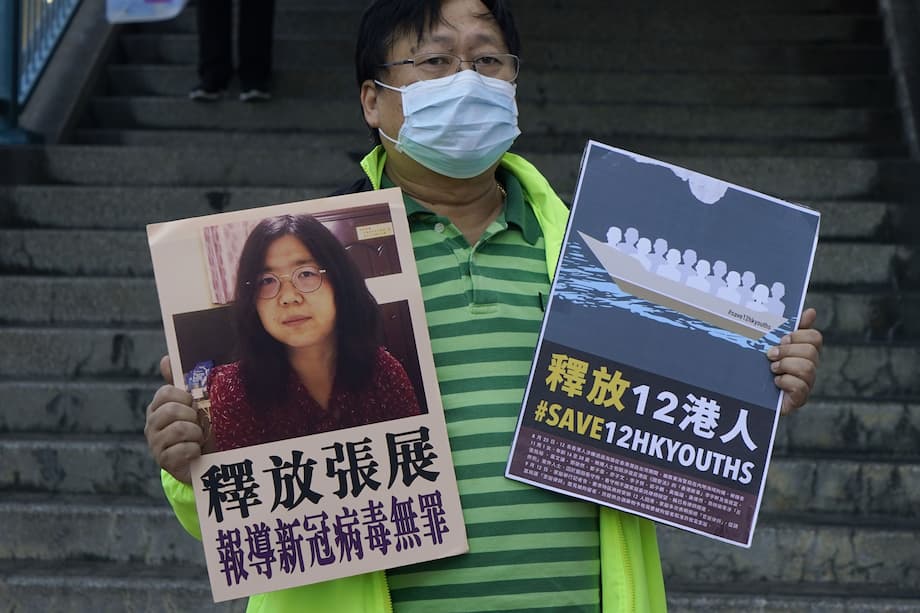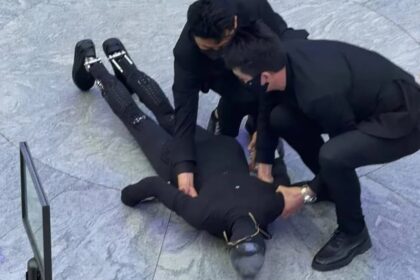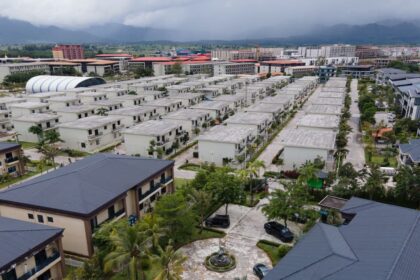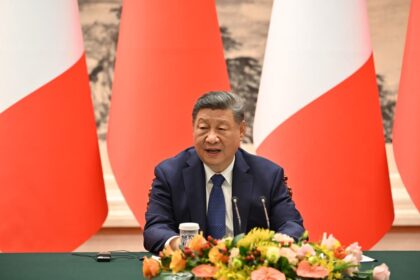A fresh four year sentence for a voice from Wuhan
Chinese citizen journalist Zhang Zhan, 42, has been sentenced to four additional years in prison after a closed proceeding in Shanghai. She first drew worldwide attention in 2020 for on the ground accounts from Wuhan as the coronavirus spread. The new conviction again cites the offense of picking quarrels and provoking trouble, the same public order charge used in her first case.
- A fresh four year sentence for a voice from Wuhan
- How the case unfolded after her release
- What does picking quarrels and provoking trouble mean
- Why her Wuhan reporting became a flashpoint
- International reaction and diplomatic pressure
- Press freedom in China by the numbers
- New public health reporting law, old constraints on speech
- Who is Zhang Zhan
- What the case signals for citizens who document sensitive events
- The Bottom Line
The ruling arrives less than a year after Zhang completed a prior four year term. She was released in May 2024, then detained again in August and later held at the Pudong Detention Center in Shanghai. Authorities have not publicly detailed the specific acts behind the new case, and supporters say the hearing ended with a brief verdict.
Zhang traveled to Wuhan in February 2020 and posted videos from hospitals, neighborhoods and streets. Her reports contrasted with the early official narrative and documented crowding, shortages and restrictions. She was arrested that May and tried in December 2020. Her legal team said she began a hunger strike soon after her detention and was restrained and force fed in custody.
The latest sentence again targets her speech and online commentary, according to rights groups that have tracked the case since 2020. They argue that Zhang’s work served the public interest during a fast moving health emergency and should never have been criminalized.
How the case unfolded after her release
After completing her sentence in 2024, Zhang kept a low profile in Shanghai. By late summer she was in police custody once more. A Shanghai court heard the new case on a Friday in a hearing closed to observers. Supporters said they were turned away outside the courthouse. A lawyer who offered to testify in her defense, Peng Yonghe, was placed under police control the same day.
Ren Quanniu, who represented her in 2020, said allegations in the new case focus on commentary posted abroad.
“These charges are based on Zhang’s comments on overseas websites. Expressing opinions online should not be treated as a crime.”
Advocacy groups argue that the new prosecution targets speech rather than any public disturbance. Aleksandra Bielakowska, the Asia Pacific advocacy manager at Reporters Without Borders, praised Zhang for public interest reporting and urged governments to act.
“She should be celebrated globally as an information hero, not trapped in brutal prison conditions. Her ordeal and persecution must end. It is more urgent than ever for the international diplomatic community to pressure Beijing for her immediate release.”
Beh Lih Yi, Asia Pacific director at the Committee to Protect Journalists, called the case baseless and said the charge is being used to punish journalism.
“This is the second time Zhang Zhan has faced trial on baseless charges that amount to nothing more than a blatant act of persecution for her journalism work. Chinese authorities must drop all charges and free her immediately.”
The verdict again leaves Zhang facing years in prison for speech that her supporters say was peaceful commentary. Authorities have not clarified whether she had access to independent counsel during the new trial.
What does picking quarrels and provoking trouble mean
The offense of picking quarrels and provoking trouble is a broad public order article in China’s criminal law (Article 293). It covers acts like creating disturbances in public places, blocking traffic or causing serious disorder. Over the past decade the provision has often been applied to online speech and nonviolent activism, which rights groups say stretches the law far beyond its original scope.
Courts have used the article to convict bloggers, human rights defenders and grassroots organizers. The maximum penalty is five years in ordinary cases, which helps explain why many high profile speech cases result in four year sentences. Vague wording and flexible interpretation give police wide discretion over what counts as a disturbance, especially when posts reach large audiences.
The United Nations human rights office has criticized the offense for its broad wording. Spokesperson Jeremy Laurence said the provision should not be used to punish peaceful expression and called for change.
“There are concerns over the conduct of Zhang’s trial as independent observers were barred, and the charge she was convicted under is vague and ill defined. The High Commissioner has urged a moratorium on its use and called for repeal.”
Chinese courts do not publish full rulings in many politically sensitive cases, so outside scholars often rely on indictments or defense statements to understand why the article was invoked. In Zhang’s case, supporters say the allegations centered on comments posted to platforms outside China.
Why her Wuhan reporting became a flashpoint
When Zhang entered Wuhan in February 2020, the city was under intense restrictions. She posted smartphone videos from hospitals, quarantine checkpoints and neighborhood committees. She interviewed residents and small business owners. Her material challenged early official claims that the situation was under control and that critics were spreading rumors.
Chinese censors moved quickly in early 2020 to rein in independent coverage. Several citizen reporters disappeared or were detained. Fang Bin vanished after posting images of bodies, and Li Zehua was taken by security officers before later reappearing and describing his detention. The pressure reflected a wider campaign against unauthorized pandemic reporting and what authorities described as harmful rumors.
After Zhang was arrested in May 2020, her lawyers described how she refused food in protest. Police restrained her and inserted a feeding tube. Rights groups warned about her health as her weight reportedly fell. The case turned her into a symbol of the risks facing anyone who documents sensitive events without a state credential.
International reaction and diplomatic pressure
The new sentence drew fresh criticism from international partners. A spokesperson for the European Union’s foreign policy arm said the bloc deplores the verdict, calls for Zhang’s immediate and unconditional release and urges China to guarantee due process. The statement also asked for reliable information about her health.
Anitta Hipper, a lead spokesperson for EU external policy, urged China to respect freedom of expression.
“We deplore the verdict against Zhang Zhan and call for her immediate and unconditional release. China should uphold freedom of expression and ensure due process, including access to counsel and transparent proceedings.”
Diplomats were not allowed to attend the hearing. Supporters outside the court said the time and location were confirmed with little notice and that police maintained a heavy presence near the courthouse.
Press freedom in China by the numbers
China is currently one of the most restrictive environments for independent media. Reporters Without Borders counts at least 124 journalists and media workers in prison. In the 2025 World Press Freedom Index the country ranks 178 out of 180 jurisdictions. Many detainees are citizen reporters who relied on social platforms or video apps to reach audiences when traditional outlets would not cover sensitive stories.
Families and defense teams often face pressure, including warnings not to speak to foreign media. Trials in cases tied to expression are usually closed, and verdicts are brief. Appeals seldom change outcomes. These features make long cases like Zhang’s a bellwether for wider conditions.
Why counting jailed journalists matters
Reliable numbers help show patterns over time, including the growing use of public order and state security statutes to prosecute speech. They also shape diplomacy, since partners reference these figures in human rights dialogues and trade talks.
New public health reporting law, old constraints on speech
One week before Zhang was sentenced, China’s legislature approved an update to emergency health procedures that will let individuals report public health emergencies directly, bypassing the normal chain of command. The change is meant to speed up early warnings when local authorities hesitate to escalate bad news.
The new rule could help address gaps exposed by the early weeks of Covid. Doctors in Wuhan who tried to warn colleagues faced investigations for rumor mongering. A direct reporting channel could reduce that risk on paper. Reality will depend on whether whistleblowers can speak without retaliation and whether police stop using broad public order laws against those who post critical accounts.
Who is Zhang Zhan
Zhang is a former lawyer from Shaanxi province who shifted to independent reporting years before Covid. She had written about rights cases and often traveled to gather information firsthand. Her move to Wuhan in early 2020 fit that pattern. She filmed with a phone, uploaded clips and short texts and sometimes streamed from locations where people queued for care or argued with officials.
Her supporters describe her as principled and direct. She refused to plead guilty in 2020 and insisted that her work served the public. After her release in 2024 she largely stayed out of sight until her detention in August.
What the case signals for citizens who document sensitive events
Zhang’s case shows how authorities treat unauthorized reporting that gains traction online. Officials describe these cases as routine public order matters. Rights groups see a pattern in which speech that challenges state accounts is recast as disruption or rumor spreading. The line between citizen reporting and illegal disturbance remains vague by design. That uncertainty encourages self censorship.
Independent chroniclers still reach audiences on video platforms, encrypted messaging apps and overseas websites. Many accept the risk. Others stop after warnings or short detentions. It remains unclear if the new health reporting channel will open space for firsthand accounts during crises, or if existing constraints will keep it confined to official systems.
The Bottom Line
- Shanghai court handed Zhang Zhan a new four year prison term for picking quarrels and provoking trouble.
- Authorities have not disclosed the specific acts behind the case; the trial was closed to observers.
- She previously served four years for Wuhan reporting, was released in May 2024, and detained again in August.
- UN, EU, Reporters Without Borders and the Committee to Protect Journalists criticized the verdict and called for her release.
- At least 124 journalists are in Chinese prisons, and the country ranks 178 out of 180 in the 2025 press freedom index.
- A new public health reporting rule promises faster alerts, while broad public order laws and tight controls on speech remain in place.












